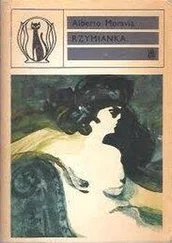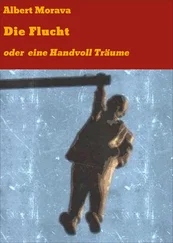On the way back, perhaps owing to fatigue, my thoughts assumed a more rational turn. I began, I remember, to think about the publisher whom I should prefer to publish the book, about the binding I should choose, the critics who would write about it, and who would like it and who would not. Then I thought of Leda, and I said to myself that I had been very lucky to find her, and, perhaps for the first time since our marriage, it dawned upon my mind how fragile was the link that bound us. I was almost frightened when I thought how my whole life depended upon her feelings for me and mine for her, how everything might change and how I might lose her. My spirit was troubled at this thought, to the point of anguish; and, feeling my breath fail and my heart tremble, I understood how closely I was now bound to Leda and how I could no longer get on without her. I realized that, in possession of her, I felt myself to be so rich that I sometimes thought I would be able to live without her; but as soon as I imagined myself separated from her, I saw that I should be the most helpless, the most wretched, the most forlorn of men. And this separation might come about any day. All at once I felt utterly depressed — though the sun was hot — chilled and shuddering from head to foot; my eyes filled with tears and I knew I was growing pale. Almost hysterically I ordered Angelo to quicken the horse's pace: 'Good God!' I cried angrily, 'we shan't be home till evening, at this rate.' Luckily we had by now reached the flat ground, and the horse, knowing its stable was near, broke into a quick trot. I started watching the road anxiously, longing to reach home as soon as possible and to see Leda and find her just as I had left her. Here was the first stretch of main road across open country, then the second, beyond the bridge; and here at last was the final stretch of road along the wall that skirted the park. Here was the gate, and here was the drive. The open space in front of the house was full of sunshine, and on the threshold of the french window, just as though she had been waiting for me there for years — an almost incredible sight after my recent terror — was Leda, in a light-coloured dress, a book in her hand. I noticed with delight, from a long way off, her attitude of expectation: evidently she had settled down to read in the drawing-room, leaving the french window open, and at the sound of the trap wheels on the gravel of the drive had at once come out to meet me. The trap stopped, I jumped out and, after greeting her, went into the house.
'It's late,' she said, following me; 'the barber's been here quite a long time. He's waiting for you upstairs.'
'What time is it?' I asked.
'It's after one.'
'It was Angelo's fault,' I said; 'I'll go at once and get shaved and come down again.'
She said nothing and went out into the garden. I rushed up the stairs, four at a time, and went into the study. Antonio stood waiting for me beside the table upon which the razors were laid out; he welcomed me with a good morning and a slight bow. In a mad hurry I said to him: 'Quick, Antonio. . it's very late. Be as quick as you can,' and threw myself into the armchair.
I realized now that I was in a hurry mainly because I was hungry. In the early morning I had had nothing but a cup of coffee, my stomach was empty and my head felt dizzy, and my hunger brought with it a kind of irritability which soon showed itself when Antonio, with his usual slowness, began to unfold the towel to put it round my neck. 'Why can't he make haste?' I thought; 'I told him I was in a hurry. . Devil take him.' The composure of Antonio's movements, which formerly had so much pleased me, had now become hateful. I should have liked to tell him to hurry, but since I had already done so I saw that I could not repeat myself and this irritated me afresh. As he turned his back upon me and began stirring the brush round in the wooden soap-bowl, I followed his movements with an impatient eye, counting the seconds. My haste and my hunger increased simultaneously.
When he had worked the soap into a good lather, Antonio, holding the brush up in the air, turned to me and began soaping my face. He was unsurpassed in the art of concentrating upon his client's face a whole enormous mass of thick, white foam; but that morning his skilfulness irritated me. Every time the brush circled my cheek I thought it was for the last time, but always I was wrong: catching, with the point of his brush, a flake of froth that threatened to fall, Antonio would begin all over again, always with the same regular movement, to work up the lather on my face. I do not know why, but the idea of lying there in the armchair with froth all over my face gave me a feeling of absurdity; and — even worse — it almost seemed to me that Antonio consciously intended to make me look absurd.
This last suspicion was ridiculous and I immediately rejected it; but it shows how my hunger had upset me. At last, as the movement of the brush over my cheeks seemed to be going on for ever, I exclaimed angrily: 'I told you to hurry up. . and you go on and on soaping my face.' I saw Antonio throw me a quick glance out of those round, bright, astonished eyes of his, and then, without a word, he put down the brush in the bowl and took up the razor.
But, before he turned away and after I had spoken, he had not been able to resist a final whisk to the lather on my right cheek. I noted this gesture of his as an act of disobedience which, I felt, came very near to insolence, and my irritation grew.
He took a moment to strop the razor, then bent over me and started shaving me. With his usual lightness and skill he removed the greater part of the lather from my right cheek, and then stretched forward to start on the left. In so doing, he pressed with his body against my arm, and I, for the first time since he had been shaving me, was aware of this pressure and at the same time could not help remembering Leda's accusations. There was no doubt about it, as he bent over me he pressed his body against my arm and shoulder, and I, at this contact, was conscious of a feeling of frantic repugnance, I could feel the softness of the lower part of his stomach, which I pictured to myself as hairy, muscular and sweaty, and enveloped in linen of a doubtful cleanliness; and all at once, through my shudder of disgust, I seemed to understand that of my wife. It was a disgust of a particular kind, such as is inspired by this type of promiscuous, sensual contact which, though entirely casual, cannot but arouse, because of some quality in itself, the suspicion that it is deliberate.
I waited a moment, hoping that he would move. But he did not, nor, indeed, could he; and suddenly my disgust overcame my prudence. With a quick movement I drew back. At the same moment I felt the coldness of the razor as it cut into my cheek.
Immediately, from whence I know not, there descended upon me a fury of hatred against Antonio. He had at once drawn back the razor and was looking at me in astonishment. I leapt to my feet, raising my hand to my cheek from which blood was already spurting, and shouted: 'What on earth are you doing? Are you mad?'
'But, Signor Baldeschi,' he said, 'you moved. . you moved violently.'
'That's not true,' I yelled.
'Signor Baldeschi,' he insisted almost beseechingly, with the respectful, as it were heartbroken, moderation of a social inferior who knows he is in the right, 'how could I possibly have cut you if you hadn't moved?'
'Believe me, you did move. . but it's nothing much — just wait a moment.' He went to the table, uncorked a little bottle, took a piece of cotton-wool from a packet and soaked it in the spirit.
Beside myself with rage, I shouted: 'What d'you mean, it's nothing much?. . it's a very bad cut'; and, snatching the cotton-wool out of his hand, I went over to the mirror. The burning sensation of the spirit gave the final touch to my exasperation. 'So it's nothing much, eh?' I shouted, throwing away the blood-stained cotton-wool in a fresh access of fury. 'You don't know what you're talking about, Antonio. . and look here — you'd better clear out.'
Читать дальше












